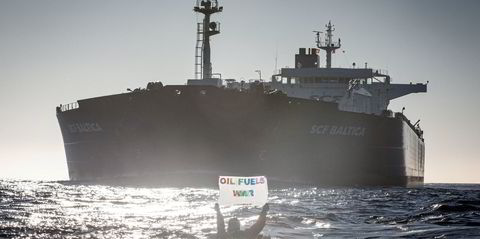The IMO’s greenhouse gas emissions targets for 2030 and 2050 are confusing decision-making and creating uncertainty over newbuilding choices.
That was the message from several famous names who this month addressed shipowners at the biennial meeting of the Costas Grammenos Centre for Shipping, Trade and Finance.
Onassis Foundation president Anthony Papadimitriou summed up the conundrum shipowners face: “Who will invest today at the end of 2019 to take delivery of a ship in 2023 that may become obsolete by 2030?”
In response to the IMO targets, shipbuilders are increasingly moving to offer dual-fuel options on all ship types.
Senior shipping analyst Martin Stopford says it is a near-impossible ask for shipowners to go from today’s diesel ships to zero-carbon vessels without the support of the regulator.
“There has to be an investment process in the middle and they [the IMO] need to find a way to make that viable,” he tells TradeWinds.
Who will invest today at the end of 2019 to take delivery of a ship in 2023 that may become obsolete by 2030?
Anthony Papadimitriou
Stopford says the IMO should provide a framework for this transition that will give owners the confidence to make the investment decisions that would in turn revive shipyard orderbooks.
“If owners don’t get some kind of reassurance that if they order a ship they are going to be able to depreciate it, they are not going to order it,” he says.
Stopford also believes the IMO targets could prove counterproductive if the transition is not correctly managed.
He says that if shipyard orders continue to decline on concerns over the viability of new ships, then the number of ships entering the market will dwindle. If there are less ships, those that are available to carry more trade on any economic revival will have to speed up, effectively evaporating the carbon savings achieved from slow-steaming, he says.
“We’ve got a perfect storm striking and you have to get your strategy right,” he says. “If IMO doesn’t do this, then they are setting the table for a massive increase in carbon emissions.”






